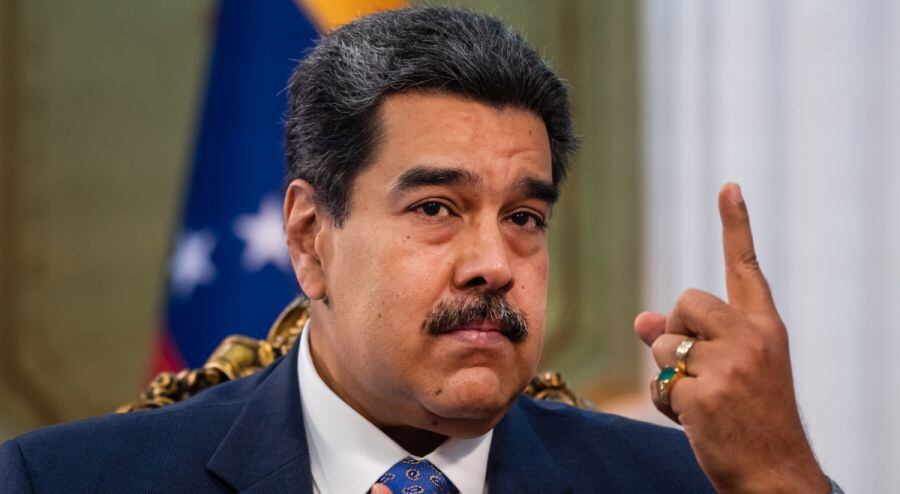
In a bid to ease pressure on global energy supplies, the United States has begun talks with the government of Venezuelan leader Nicolás Maduro, which could lead to the lifting of some sanctions against his regime. This would be a blow to the Venezuelan opposition and its desire to see Maduro out of power. Regardless, the United States should move on.
The reestablishment of diplomatic relations with Venezuela is a necessary step to take advantage of its immense energy potential. It could also drive a wedge between Venezuela and its main backer, Russia.
Any move aimed at easing US sanctions against Caracas will face stiff political resistance from lawmakers of both parties, who have already criticized President Joe Biden for engaging in talks with Maduro.
However, a realistic policy emphasizing gradual political reform, rather than the illusory hope of regime change, would not only advance US strategic interests, but also the aspirations of Venezuelans themselves.
Although still in its early stages, Biden’s opening to Caracas represents a significant change. Since accusing Maduro of stealing the 2018 presidential election, the United States has recognized opposition leader Juan Guaidó as the country’s leader. Former President Donald Trump imposed sanctions on Maduro, his family and much of his inner circle, and blocked purchases from the state-owned Petróleos de Venezuela SA. In recent years, the weight of sanctions, government corruption and the pandemic have aggravated a humanitarian crisis that has led 6 million Venezuelans to flee the country.
However, there is little sign that this “maximum pressure” campaign has weakened Maduro’s grip on power. Maduro has taken advantage of divisions within the opposition to consolidate control over the country’s judiciary, security services and electoral system. He has also pursued a strategic partnership with Russia, which has provided the regime with military hardware, revenue from oil sales and investments in the country’s energy sector, in exchange for allowing Russia to deploy nuclear-capable warships in Venezuelan ports. .
But now that deal could be in jeopardy: Western sanctions imposed on the Kremlin over its invasion of Ukraine have left Maduro’s government unable to access funds held in Russian banks. This offers an opportunity to the United States
In exchange for Venezuela suspending its military cooperation with Russia, the Biden administration should lift some sanctions against Caracas to allow the country to import equipment to upgrade production facilities and resume oil sales to the United States. In the short term, adding Venezuelan supply will have a negligible impact on world crude oil prices, which have already started to fall.
In an optimistic scenario, Venezuela could increase its production to 1.5 million barrels per day by the end of the year if restrictions are eased, almost double its current production. Even a more modest increase in supply would help US refiners offset lost Russian oil imports and could limit near-term rises in consumer gasoline prices.
Biden should be clear about the moral hazard of doing business with an authoritarian leader like Maduro. Any further steps toward normalization should be conditional on Venezuela’s willingness to accelerate market-oriented economic reforms and continue negotiations with the opposition to allow greater political freedoms.
The United States should insist that the government release political prisoners and prosecute human rights abuses. Although the European Union no longer recognizes Guaidó as Venezuela’s president, the United States should continue to do so until Maduro commits to a timetable for holding free presidential elections supervised by international observers.
Toppling Maduro was a justifiable goal at a time of relative stability, but the strategic environment has changed. Disgusting as it may be, engaging with the Venezuelan regime is critical to protecting core US interests and containing Russian influence in the Western Hemisphere. Biden should aim for a policy that balances economic and security needs with a commitment to democratic values, and provides a path to a more productive relationship with Venezuela and its long-suffering people.
Source: Gestion
Ricardo is a renowned author and journalist, known for his exceptional writing on top-news stories. He currently works as a writer at the 247 News Agency, where he is known for his ability to deliver breaking news and insightful analysis on the most pressing issues of the day.












